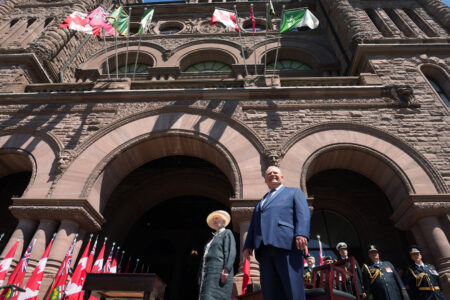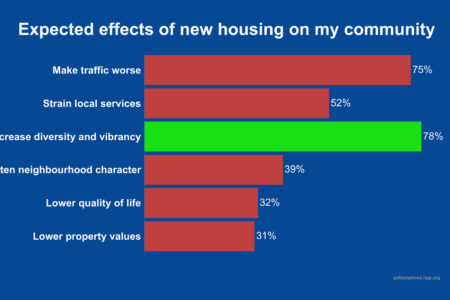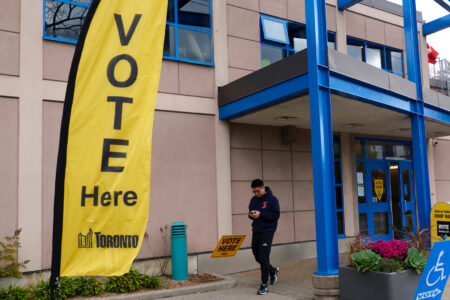
Have you heard the one about the guy who gets caught by the police while driving around with a bunch of penguins in the back of his pickup truck?
The officer pulls him over and says ”œBuddy, you can’t drive around with a bunch of penguins in your truck. Take them to the zoo!”
The guy says okay and pulls away.
The next day the officer pulls the guy over again. This time the penguins, once again in the back of the truck, are wearing sunglasses.
”œBuddy,” says the officer, ”œWhy are you driving around with these penguins? I told you yesterday to take them to the zoo!”
”œI did,” replies the driver. ”œToday we’re going to the beach!”
Late Wednesday, Glen McGregor, Ottawa Citizen national affairs reporter, took to Twitter to break””to the best of my knowledge he was first out of the gate with the news””the latest poll data about the upcoming federal election (which feels like it has been upcoming since Confederation; I mean, good god, some of us have hobbies and friends we miss). The latest data indicates that the New Democratic Party (NDP) currently leads national polling with 29.2 per cent voting intention. The Conservative Party is in second, with 28.6 per cent, and the Liberal Party finds itself at 27.6 per cent. All are within the margin of error, which backs a point made by Andrew Coyne a while back””that we have ourselves a three-way race, at least for the moment.
McGregor followed up his note about the polling data with a reminder the NDP has led national polls in the past””and more than once””and another suggesting that the Harper versus Trudeau narrative is no longer the exclusive election frame.
Yesterday the penguins went to the zoo. Today they’re going to the beach.
I agree with McGregor that the Harper/Trudeau horse race narrative is not, for the moment, the sole electoral narrative; and I won’t be too surprised if the numbers are accurate and do indeed reflect an NDP lead (these days you have to be at least a little surprised when the pollsters get it right). After all, the NDP has been trending up in the polls for some time and, in general, the party has remained a steady and congenial character as the federal political scene has gone high-kabuki.
But polls do one thing above all others, and they do it well: they communicate immediate, off-the-top-of-your-head intentions, and they communicate them bluntly. Once that information enters the public sphere, poll results shape expectations about who will win and may also shape voter intentions, especially as voters in a first-past-the-post electoral system incorporate polling data into their strategic considerations. What polls communicate in the moment””however ephemeral the underlying cause or causes of the results””plays a role in shaping political reality whether they ought to or not.
Polling results also quickly become the story. The theatre of the poll””I’ll resist the bottom-shelf gag if you do”” then distracts attention from platform and policy discussions. A self-reinforcing narrative emerges: Who’s winning? Party X! Why? Well, because they’re ahead. Just look at the polls! Why are they ahead? Not sure; but I think they’re against taxes and for families.
Of course polls change; so do opinions and voter intentions. And polls aren’t fully determinative of either. But that’s not the point. The point is that polls don’t serve public discourse.
If polling results were a mere reflection of more substantive considerations””perceptions of leader competence (which also get polled), the soundness of party platforms, assessments of past party or leader performance or prediction of future performance, the quality of candidates on offer, and so forth””and the story ended there, my concerns would be hollow. But they don’t, so they’re not. Poll results, whatever determines them, go on to shape expectations as much as they reflect them; and aside from encouraging and assisting strategic voting considerations, I’m not sure what value they add to public knowledge and discourse. (Their value to journalists and scholars of electoral and opinion behaviour is another matter.)
When it comes to polling, like the cop and the guy with the penguins, what is said and what is heard are not always the same thing.
So, in the end, I guess the joke’s on us.









